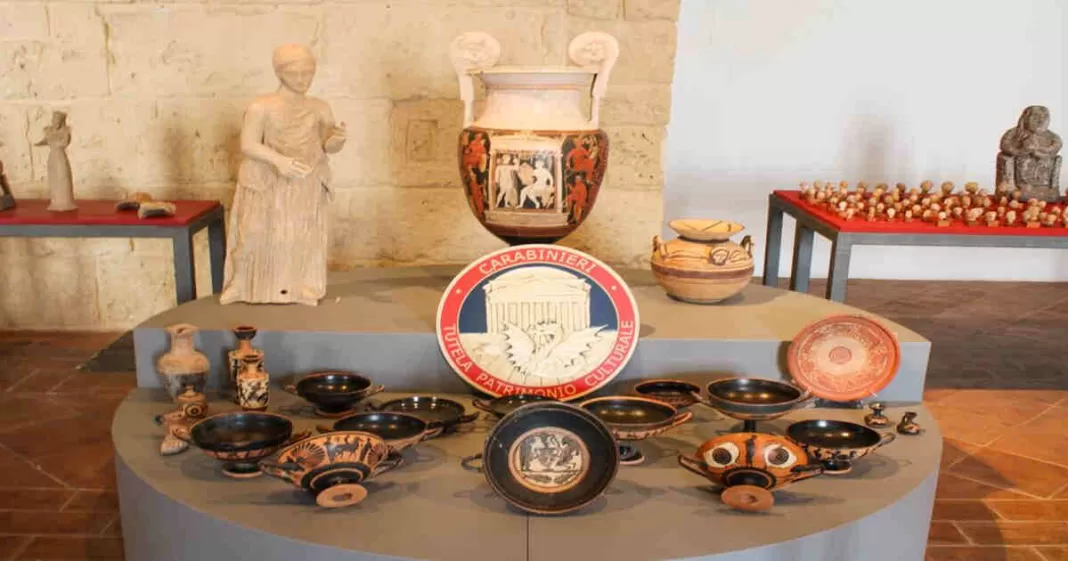Interpol has reported that last year’s annual operation, codenamed Pandora VII, led to the arrest of 60 people in Europe for trafficking in stolen artworks and artefacts. Police from 15 countries, including Spain, Italy, Poland, and Portugal, collaborated in the operation, which resulted in the retrieval of over 11,000 items. These included ancient books, sculptures, and coins, some of which had been stolen from churches, monasteries, and other cultural institutions.
Details of Operation Pandora VII
The operation took place from September 13 to 24, 2022, and involved the coordinated efforts of police from across Europe. The operation was led by Spain’s Guardia Civil police, and Interpol provided oversight and coordination between the different forces, along with the EU law enforcement cooperation agency, Europol. The items that were recovered included 77 ancient books in Italy that had been stolen from a monastery, thousands of historic coins in Poland, and 48 religious sculptures and other artefacts in Portugal that were believed to have been taken in a string of church robberies in the 1990s and early 2000s.
Read More: The impact of AI on the artistic landscape
The success of Operation Pandora VII is due to the collaboration and cooperation between the different police forces involved. By working together, they were able to share information and intelligence, which enabled them to track down and arrest those responsible for trafficking in stolen artworks and artefacts. This operation is part of a wider effort by law enforcement agencies around the world to protect cultural heritage and prevent the looting and trafficking of cultural artefacts.
Significance of the Results
The retrieval of over 11,000 stolen artworks and artefacts is a significant achievement and a victory for those who seek to protect cultural heritage. These items are not just valuable works of art; they are also an important part of our shared human history and cultural heritage. By retrieving these items, law enforcement agencies are helping to preserve our past and prevent it from being lost forever. The success of Operation Pandora VII is also a warning to those who engage in the illicit trade in stolen artworks and artefacts that law enforcement agencies around the world are working together to combat this criminal activity.
Ongoing Efforts to Protect Cultural Heritage
While the success of Operation Pandora VII is to be celebrated, there is still much work to be done to protect cultural heritage around the world. According to Interpol, some 130 investigations are still ongoing, and more seizures and arrests are anticipated as investigators continue to pursue those responsible for stealing and trafficking in cultural artefacts. This ongoing effort requires not only the cooperation of law enforcement agencies but also the support of the general public.
There are a number of steps that can be taken to protect cultural heritage, including increasing public awareness of the importance of these items, implementing stronger laws and regulations to prevent their theft and trafficking, and providing funding and support for the protection and preservation of cultural institutions. The general public can also play a role by reporting any suspicious activity related to the looting or trafficking of cultural artefacts.
Read More: Comparative Hell: Arts of Asian Underworlds, sparks debate
Operation Pandora VII is a shining example of the importance of international cooperation in the fight against the illicit trade in stolen artworks and artefacts. The retrieval of over 11,000 items is a significant achievement and a victory for those who seek to protect our shared cultural heritage. However, this is just one step in an ongoing effort to protect cultural heritage around the world. By working together, law enforcement agencies and the general public can help to ensure that our cultural artefacts are preserved for future generations.














